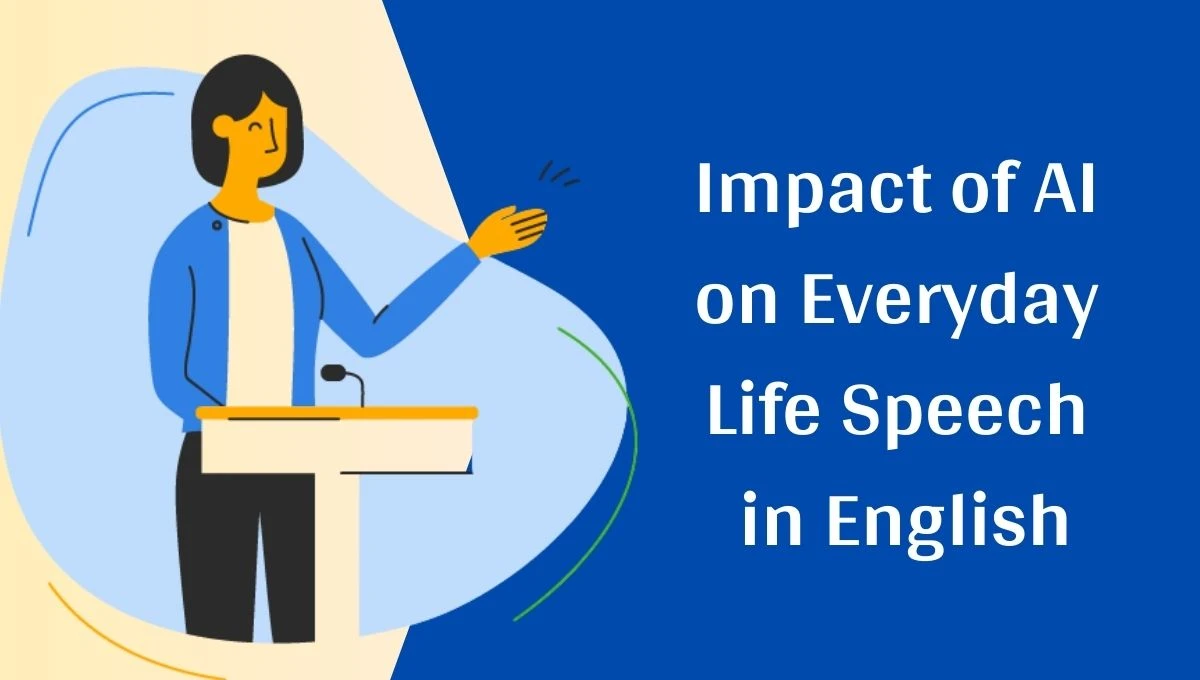Honorable Chairperson, respected teachers, and my dear friends,
Impact of AI on Everyday Life Speech in English: Today, I am going to speak on the topic ‘The Impact of AI on Everyday Life.’ This topic is so fascinating that it is connected to each of our lives. AI, or Artificial Intelligence, is a form of artificial intellect. This technology is no longer confined to science fiction or movies; it has deeply integrated into our daily lives. By 2025, the influence of AI has grown so much that its presence is visible in everything from the moment we wake up in the morning to when we go to bed at night. Let us discuss this impact, which includes both positive and negative aspects.
First, let’s look at how AI has made our daily lives easier and more efficient. For example, in the healthcare sector, AI is incredibly helpful. Nowadays, smartwatches or fitness apps use AI to monitor our heart rate, sleep quality, and provide exercise recommendations. This is not limited to exercise; AI also predicts serious illnesses. I read in a report that AI has increased the accuracy of doctors’ diagnoses by up to 30%. This has made it possible to save patients’ lives. In education, AI is bringing about a revolution. Online platforms like Khan Academy or Duolingo use AI to identify students’ weaknesses and provide personalized lessons. I have personally experienced how engaging and effective this kind of learning is. Students can now learn from the world’s best teachers from the comfort of their homes, all thanks to AI.
Pros and Cons of Social Media Speech in English: Pros and Cons of Social Media Speech
Now, let’s examine AI’s impact in the workplace. By 2025, AI agents assist in our daily tasks. For instance, organizing emails, scheduling meetings, or analyzing data. According to a study, AI has boosted productivity by 40%. It also brings automation to businesses, making companies more efficient. I heard from a business friend that in their office, AI chatbots handle customer queries, freeing up employees for more critical tasks. In transportation, AI introduces self-driving cars and traffic management systems. Apps like Uber or Ola use AI to suggest the best routes, saving time and fuel. In entertainment, platforms like Netflix or YouTube use AI to recommend content based on your preferences. These are not small changes; they make our lives more comfortable.
However, every coin has two sides. The negative impacts of AI cannot be ignored. First, its effect on jobs. Due to AI automation, many jobs are at risk. A report stated that by 2030, millions of jobs could change, especially in fields like manufacturing and data entry. This creates a need for people to learn new skills, but not everyone can do so. Second, the issue of privacy. AI collects data, raising concerns about the misuse of personal information. I read in a news article that AI algorithms can make biased decisions, such as in facial recognition. Additionally, AI puts a strain on the environment. Training AI models requires enormous amounts of energy and water. In 2025, this has become a part of climate change concerns, as data centers’ electricity consumption has increased. Considering these issues, governments and companies are introducing regulations to ensure AI is used responsibly.
Importance of Education Speech in English: The Magic Wand that Transforms Lives
In conclusion, AI is a powerful tool that can improve our lives or pose challenges. We must use it wisely. Parents should educate their children about AI, as a survey indicated that only 35% of parents do so. As an expert, I say that AI is the future, but always maintain the human touch in it.
Thank you! Jai Hind!
